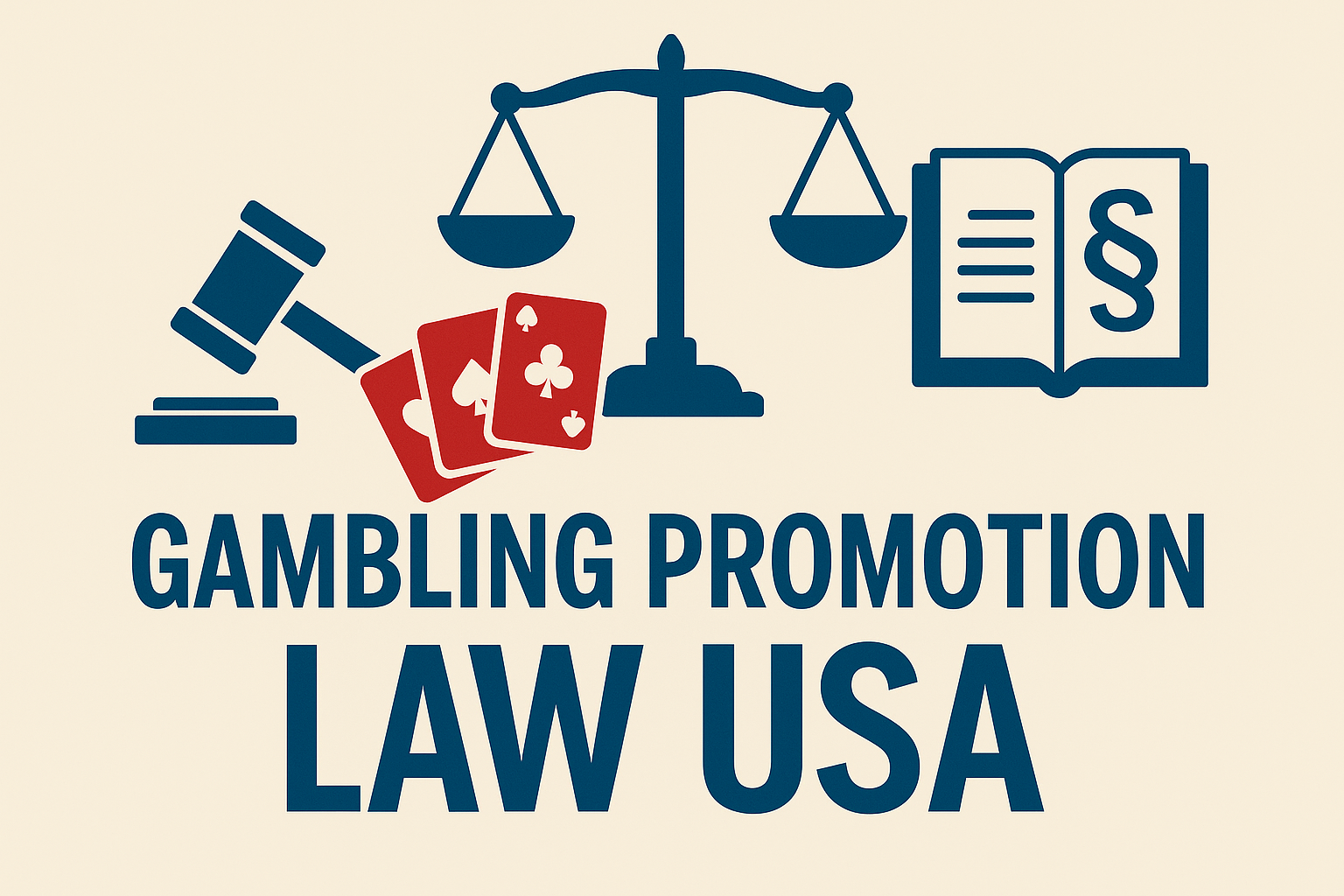
The Gambling Promotion Law USA covers how gambling-related businesses advertise and promote their services. It combines federal and state laws. Operators, affiliates, and marketers must follow strict rules to avoid penalties. Violations can result in fines, asset seizure, or even prison. If you promote gambling without proper compliance, authorities can charge you with a criminal offense. They may also shut down your operation. The United States enforces these laws aggressively. Understanding them is essential for anyone involved in the industry.
In this article from QMRA.eu we will tell you all about it!
What Does “Gambling Promotion” Include?
Promotion means more than just advertising. It includes referring players, handling bets, paying out winnings, or facilitating access to illegal platforms. Under 18 U.S.C. § 1955, the federal government can prosecute those involved in illegal gambling businesses. To qualify for prosecution under this statute, the business must involve five or more people and earn $2,000+ per day. Promoting illegal gambling, even indirectly, can trigger these charges. You could also face charges under the Travel Act if you use mail or online tools across state lines. Another major federal law, the Unlawful Internet Gambling Enforcement Act (UIGEA), targets payment processors and platforms. This act bans businesses from accepting funds tied to illegal gambling. Promoters are not immune. Affiliates, influencers, and webmasters can all be held liable.
State-Level Gambling Promotion Laws
States apply their own laws to gambling promotion. These laws vary, but most are stricter than federal rules. In Texas, Penal Code § 47.03 makes it illegal to promote or profit from gambling (Texas Criminal Defense Group). Violators face up to one year in jail and a $4,000 fine. New York enforces even tougher rules. Promoting gambling in the first degree is a felony under Penal Law § 225.10. If convicted, you could face up to 4 years in prison. States can also apply tax laws. The IRS charges a 2% excise tax on illegal gambling profits. That’s eight times more than the 0.25% tax on legal wagers. Understanding both federal and state regulations is crucial for full compliance with Gambling Promotion Law USA.
Criminal and Financial Penalties
Violating gambling promotion laws can result in severe consequences. The penalties depend on the size and scope of your involvement. At the federal level, you can face up to five years in prison and a $250,000 fine. Organizations may face fines of up to $500,000. If your operation is tied to organized crime, prosecutors can file RICO charges. These cases allow sentences of up to 20 years. They can also seize all business assets. States apply their own penalties, including misdemeanor and felony charges. Repeat violations raise the risk significantly. Promoters often underestimate the financial damage. Civil lawsuits, lost advertising privileges, and tax audits can follow a criminal case.
How Online Promotion Is Regulated
Online promotion adds another layer of complexity. Many companies now use digital ads, affiliate links, and social media to promote gambling. The American Gaming Association (AGA) created a Responsible Marketing Code. It bans targeting people under 21 and requires full transparency (AGA Code). In April 2025, Google updated its gambling ad policies. Affiliates must be verified, and ads must follow regional restrictions. The update also banned all “social casino” ads without real-money gambling. Violations can result in account bans or advertiser blacklisting. State regulators also monitor online ads. If your campaign targets a restricted state, you could face prosecution, even if you operate legally elsewhere.
Enforcement in Real Cases
Federal and state authorities take gambling promotion seriously. They’ve prosecuted both large and small operations. In 2024, officials in Houston dismantled a $9 million gambling ring. Prosecutors charged participants with promotion, conspiracy, and racketeering. The FBI also seized over 2,000 gambling machines. In Connecticut, DraftKings paid a $3.1 million fine. Regulators found the company had promoted bonuses to unqualified users (CT Insider). These cases prove how broad the Gambling Promotion Law USA is. Promoters, advertisers, and influencers all face legal risk.
How to Stay Compliant
If you promote gambling, follow these steps to stay within the law:
- Work only with licensed operators.
- Avoid targeting users in banned states.
- Clearly disclose all bonuses and requirements.
- Register your affiliate account on platforms like Google.
- Train your marketing team on compliance rules.
- Track every campaign and document approvals.
- Stay updated on law changes in each state.
Breaking even one of these rules can lead to criminal or civil penalties. Compliance is an ongoing process, not a one-time task.
Conclusion
The Gambling Promotion Law USA enforces strict advertising and marketing rules at both federal and state levels. Authorities prosecute illegal promotion aggressively. Businesses must understand these rules and adjust their practices accordingly. Stay informed, disclose clearly, and promote only legal gambling options. That’s how you protect your brand and your freedom.
Want to be sure that you only gamble at legal offers in the USA? Than make sure to use one of the trusted affiliates from QMRA.eu! All our affiliates undergo strict compliance checks based on local legislation.

